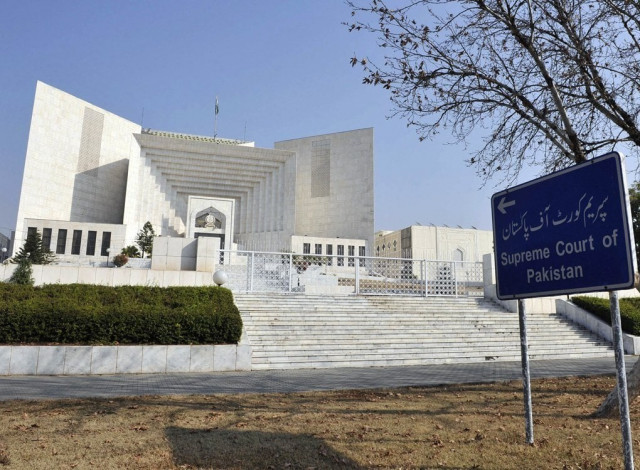Hamza challenges SC order removing him as Punjab CM
Former CM requests 12-member bench hear matters regarding Elahi's election and interpretation of Article 63A

Former Punjab chief minister Hamza Shahbaz on Friday challenged the Supreme Court’s order of setting aside the Punjab Assembly deputy speaker's ruling wherein 10 votes of the Pakistan Muslim League-Quaid (PML-Q) were discarded, which lead to Hamza’s victory as the provincial chief executive.
Hamza, through Mansoor Awan Advocate, filed a review petition in the apex court against the July 26 order which thwarted former deputy speaker Dost Mohammad Mazari’s decision, declaring Chaudhry Pervaiz Elahi as the new CM of the country's political heartland.
The PML-N leader prayed that a full court be constituted to decide the matters involving the interpretation and application of Article 63A of the Constitution in this regard, as well as other connected matters and that they be heard together by the full court or at least a 12-member bench.
The review petition submitted that without "prejudice, the order, by holding that directions of the Parliamentary Party sans any role of the Party/Party Head is binding", contradicted the apex court’s ruling dated May 17, 2022, on Article 63A given in Presidential Reference No 1 of 2022 wherein the SC extended the right of a political party under Article 17(2) to Article 63A, and arrived “at the conclusion that a vote contrary to the party policy is to be disregarded and not counted”.
It maintained that the opinion of the SC in the presidential reference was contrary to the letter of Article 63A and that votes polled contrary to the directions could not be disregarded.
“The Petitioner further submits that the opinion of this Honorable Court in Presidential Reference No 1 amounts to rewriting the Constitution, which is impermissible. The reference to the opinion in Presidential Reference No 1, for the purposes of this instant Petition, may kindly be taken and understood in the present context and submissions made herein are specifically in the context of the application of the aforesaid opinion on the ruling of the Deputy Speaker dated 22.07.2022.”
The petition also reiterated that a review petition against the order in the presidential reference was already pending before the SC and whatever had been submitted in relation to the aforesaid order was “without prejudice to the pending review petition”.
The review petition stated that the court in its order had failed to appreciate that “when a justice signs a judgment, then to the extent that judgment is not expressly controverted in the separate opinion, that justice remains bound by the judgment he has put a signature to, whereas the order makes the inverse and counter-intuitive inference that because other aspects were covered in the separately rendered decision”.
“Therefore, the opinion on which the signature is affixed was not of much importance.
“Principles of stare decisis and the past practice of this Honorable Court warranted that a three-member bench, by reading the Article 63A of the Constitution differently, from an already established reading by this Court, rendered repeatedly, ought to have, at the very least, requested the Honorable Chief Justice to constitute [a] Full Court or at the very least a 12-member bench,” the petition pleaded.
According to the petition, the SC order had stated that “if a judge has unconsciously followed an incorrect view of the law, he has by the conscious application of mind the freedom to adopt the correct view of the law subsequently”, but the “view of the law” was not only followed by a judge, now on a three-member bench, but also by 11 judges, in total.
“Therefore, a switch with a three-member bench, breaking as under from a previously forged understanding reached with 11 other Honorable Judges, turns the principle of stare decisis upside down.”

1724319076-0/Untitled-design-(5)1724319076-0-208x130.webp)

















COMMENTS
Comments are moderated and generally will be posted if they are on-topic and not abusive.
For more information, please see our Comments FAQ